'Wuhan West' Colorado State University Bat Lab Receives Millions in New NIH Funding
NIH pumped another $2.26 million into CSU's risky biolab, despite EcoHealth's suspension and fears of deadly virus leaks.
In a timely revelation during Halloween’s Bat Week (October 24–31), new federal funding has been allocated to Colorado State University’s (CSU) bat research facility in Fort Collins, Colorado, stoking opposition from public health advocates and government officials alike.
Follow Jon Fleetwood: Instagram @realjonfleetwood / Twitter @JonMFleetwood / Facebook @realjonfleetwood
CSU’s work with “select agents”—pathogens like Ebola deemed severe threats by the CDC—means the university participates in work involving dangerous viruses under high-security conditions, raising concerns about public safety and containment risks.
According to records recently obtained by the White Coat Waste Project (WCW), CSU’s lab—which is set to experiment on dangerous viruses using bats imported from Asia—received an additional $2.26 million from the National Institutes of Health (NIH) last month.
In recent days, WCW has released photos obtained via Colorado Open Records Act (CORA) requests, showing scenes of bat hunting and experimentation associated with the CSU lab project.



These images have further stoked community concerns and added a visual urgency to the push against the facility.
WCW President and Founder Anthony Bellotti criticizes CSU’s “Wuhan West” lab, arguing taxpayers shouldn’t fund its $15 million in hazardous bat virus experiments, citing risks to public health, animal welfare, and national security.
He highlights CSU’s track record of lab accidents and collaborations with Wuhan and urges the NIH and Governor Polis to end the project’s funding.
“We’ve been exposing and fighting CSU’s reckless ‘Wuhan West’ lab because taxpayers in Colorado and nationwide shouldn’t be forced to bankroll the government’s $15 million in scary spending on wasteful, deadly, and cruel bat virus experiments that threaten animals, public health, and national security,” Bellotti told this website.
“Our investigations have documented CSU’s sordid history of dangerous animal lab accidents, useless bat experiments, and collaborations with the Wuhan lab that experts believe caused COVID. Our message to the NIH and Governor Polis is clear: Stop the money. Stop the madness!”

The new financial allocation arrives despite EcoHealth Alliance (EHA) being removed from the project due to a federal suspension, leaving questions about how CSU will source its bats without EHA’s well-known global network.
The facility has long drawn criticism for its controversial research scope and safety risks, with the recent funding disclosure renewing scrutiny.
“The taxpayer-funded bat lab being built by Colorado State University in collaboration with the NIH and infamous Wuhan lab funder EcoHealth Alliance is a waste of money and a threat to public health,” stated WCW’s Senior Vice President Justin Goodman.
The taxpayer-funded project’s NIH backing, as well as its location near a community wary of lab-based virus work, has inflamed public concern.
Congress Moves to Block CSU Lab Funding
Congressman Paul Gosar (R-AZ) is spearheading legislative action to halt the facility’s funding, submitting an amendment to the 2025 NIH funding bill to cut all grants supporting the CSU bat lab project.
Rep. Gosar’s proposed amendment underscores a growing congressional focus on the public safety and fiscal responsibility of high-stakes virus research.
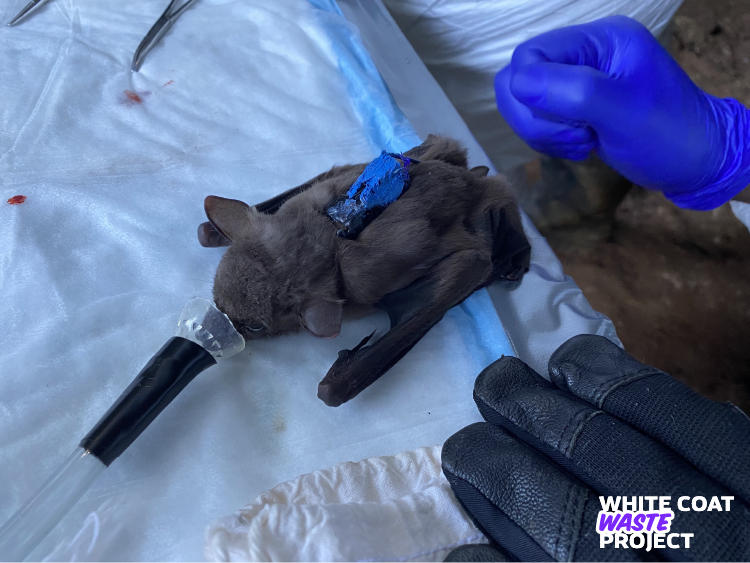
His amendment, now pending review in the House after the upcoming election, signals a turning tide among lawmakers wary of NIH’s funding priorities in a post-pandemic landscape.
Gosar’s concerns echo those of other legislators, like Sen. Joni Ernst (R-IA), who have openly opposed the facility’s mission, fearing a potential pandemic stemming from the lab’s experimental pathogen work.
Federal Support Amid EcoHealth’s Federal Ban
The CSU lab’s new $2.26 million in NIH funding, provided through the National Institute of Allergy and Infectious Diseases (NIAID), bolsters a project that has weathered substantial setbacks.
Initially a collaborative endeavor with EcoHealth Alliance, the project is advancing despite EcoHealth’s federal suspension, enforced due to the organization’s handling of taxpayer funds and controversial experiments at the Wuhan Institute of Virology (WIV).
EHA’s removal from the CSU project raises operational questions, as the alliance was previously responsible for importing bats from abroad, specifically in Asia where certain bat species are known carriers of SARS-related coronaviruses and Nipah virus.


Without EcoHealth’s network, it remains unclear how CSU will proceed in capturing and importing the bats needed for its work.
The project, titled “Establishment of a Bat Resource for Infectious Disease Research,” is designed to create breeding colonies of bats for experimental infection studies on high-risk pathogens.
These include coronaviruses like SARS-CoV-2 and MERS, as well as Nipah virus, an often-deadly pathogen with a pandemic potential akin to Ebola.
Experimental infection models will examine how these viruses circulate within bat populations and the factors that enable bats to harbor these viruses without apparent illness.
NIH records emphasize that the project aims to generate insights to mitigate virus spillover risks to humans.
A Worrisome History of Lab Leaks and Safety Incidents
Public scrutiny has intensified due to CSU’s and NIH’s documented histories with safety incidents in viral research settings.
Freedom of Information Act (FOIA) documents uncovered by WCW this year revealed over 50 safety violations at CSU’s facilities from 2020-2023.

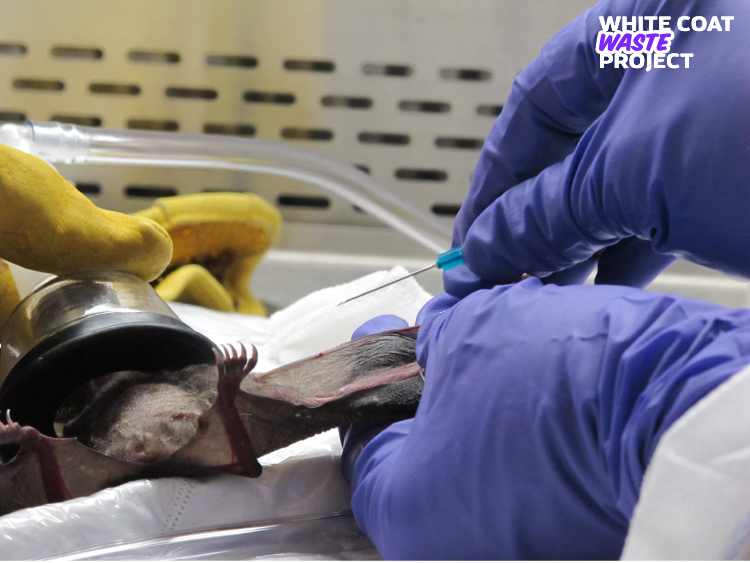
Reports included incidents such as lab workers bitten by COVID-19-infected hamsters, exposure to tuberculosis, and mishandling of infected animal samples, prompting questions about the safety protocols in place.
Further, USDA findings indicate that CSU faced federal fines for violating the Animal Welfare Act, with inspectors citing failures to prevent “discomfort and physical harm” to animal subjects.
Public figures have raised alarms over the lab’s safety record and close ties to high-stakes viral research.
In November 2023, Goodman remarked on the urgency of increased oversight, warning, “After what we exposed in Wuhan, giving the disgraced EcoHealth Alliance and its cronies millions more of our tax money to traffic infected wild bats from Asia to US animal labs for dangerous virus experiments is a recipe for disaster.”
In an opinion piece for The Washington Times published last June, Goodman wrote:
CSU and EcoHealth’s bat lab scheme poses unnecessary risks that threaten our health, safety and national security. With nothing to suggest they can produce meaningful results to help humans, this bat lab is an extremely poor investment of taxpayer money and does not merit support.
Defunding EcoHealth is a good start, but we hope taxpayers will join us in urging Congress to cut all funding for this misguided and menacing project as lawmakers craft federal spending bills for 2025.
Public Pressure Mounts
Christine Wright Bowman, the leader of the grassroots group Covid Bat Research Moratorium of Colorado, has been vocal in her opposition, urging community action.
“Until construction is actually completed, we have time to convince the people of Fort Collins, and this nation, that we should be concerned about the safety of this research,” she said, voicing a growing sentiment among Fort Collins residents and beyond.
“CSU will not stop voluntarily; we need the help of Congress.”

Bowman’s group has been actively lobbying for a halt to construction, a call that aligns with Gosar’s efforts in Congress.
Bowman urges all Americans to get involved, emphasizing the potential nationwide impact of any accidental virus release: “The potential of having another deadly disease leak from a lab is overwhelming. We need to stop this now.”
In Boulder, resident and advocate Erin Ashbaugh, working alongside Christine Bowman, voiced her deep concerns over Colorado State University’s (CSU) scientific practices, particularly in light of lessons learned from the pandemic.
“Without transparency—which CSU has avoided at all costs—and accountability in the form of regulation—which we now know is minimal, if not non-existent—CSU’s plans are anything but responsible,” Ashbaugh told this website.
“After the global impact of this kind of irresponsibility, it is unfathomable that our government—local and national—would allow such activities to happen in our backyard. Even worse, taxpayers who may bear the brunt of potential fallout from these actions are footing the bill, with no say in the matter.”
Her concerns intensified following the recent passage of a rule allowing U.S. agencies to bypass safety checks and oversight on ‘enhanced’ pandemic-level pathogen gain-of-function research.
Ashbaugh emphasized the need for bipartisan action:
“It’s time for politicians to cross the aisle and work together to fulfill the duty they were elected for—to protect the best interests of our nation. If people weren’t awake before, maybe this will be the catalyst. This is not just a Colorado issue. Our backyard is everyone’s backyard. Our representatives need to stand up for what is best for the people—locally, nationally, and globally—not the interests of universities and organizations with a record of questionable science.”
A Critical Crossroad for NIH Funding
The fate of the CSU bat lab project now hinges on Congress’s decision regarding the NIH’s 2025 funding bill.
As the nation reflects on the lessons of the COVID-19 pandemic, the CSU lab’s purpose, federal backing, and the ethics of viral research are poised to come under intensified scrutiny.


The question remains: will federal funding continue to fuel a project that some argue could unleash the very viruses it seeks to understand?
For Bellotti, Goodman, Bowman, Gosar, and others, the answer is clear: America can no longer afford to gamble with such high-stakes research on its own soil.
Follow Jon Fleetwood: Instagram @realjonfleetwood / Twitter @JonMFleetwood / Facebook @realjonfleetwood
Mystery Illness Strikes Colorado State University Students After New Bat Lab Construction Begins in Fort Collins
Colorado State University has removed classes and labs from the Physiology Building in Fort Collins after “some people reported health concerns while in the building,” per local CBS Colorado.
Documents Reveal Over 50 Safety Incidents at CSU's Virus Lab Amid New Bat Research Facility Construction
Documents obtained through a Freedom of Information Act (FOIA) request by the White Coat Waste Project (WCW) have exposed a series of alarming safety incidents at Colorado State University (CSU) in Fort Collins.
New Colorado Bat Lab Location CSU Confirmed to Develop ‘CDC Tier 1 Select Agents’ Like Ebola Despite University's Denials
As health workers in Denver, Colorado receive doses of a “shedding” and live virus-containing Ebola vaccine, concerns have been raised over a new bat research facility to be built just up the road, at Colorado State University (CSU) in Fort Collins.
Ebola Vaccine That 'Sheds' in 31% of Vaccinated Given to Colorado Healthcare Workers Just Down the Road from New Bat Lab
Editor’s note: This article’s headline has been updated to clarify that the FDA insert for Merck’s ERVEBO Ebola vaccine states that the vaccine “sheds” in more than 31% of those vaccinated with the drug. The prior headline said that the vaccine “‘Sheds’ Onto/Infects Others 31% of the Time.” It is more precise to simply say that the vaccine “sheds” in 31…
New Bat Lab Proposed Despite CDC's Past 'Serious Safety Violations While Working with Bioterror Pathogens' in Colorado
A new taxpayer-funded laboratory is being built in Fort Collins, Colorado that will import bats from around the world and experiment on dangerous diseases, potentially including Ebola, Nipah virus, and COVID-19.
New Images Show Colorado Bat Lab Construction Underway Despite Safety Concerns
Construction has begun on a new laboratory at Colorado State University’s (CSU) Foothills Campus in Fort Collins, despite significant safety concerns.
Missouri's New $183 Million BSL-2 Biolab Slated for Completion 2026 Raises Lab Leak Concerns
The State of Missouri officially broke ground in June for its new Multi-Agency State Laboratory Campus biolab in Jefferson City.
DHS Warns of State-Sponsored, AI-Engineered 'DNA Modification to Develop Biological Weapons to Target Specific Groups' of Americans: Homeland Threat Assessment
The U.S. Department of Homeland Security’s (DHS) 2025 Homeland Threat Assessment (HTA) released earlier this month is raising the alarm about the development of “biological weapons” utilizing “DNA modification” that can target “specific groups” of Americans.
American Bioweapons: Then & Now
The United States had an extensive offensive biological weapons program stretching back at least to World War II and the Cold War era.
Treaty 'Loophole' Allows World Governments to Develop Deadly Bioweapons Like COVID and Corresponding Vaccines: Yale Professor (Video)
The ‘Convention on the Prohibition of the Development, Production and Stockpiling of Bacteriological (Biological) and Toxin Weapons and On Their Destruction,’ known as the “Biological Weapons Convention” (BWC), was opened for signature in April 1972 and took effect in March 1975.
Operation 'Large Area Coverage' (LAC): U.S. Gov't Covertly Sprays Airborne Toxic Chemical Agent on Unsuspecting Americans in Secret Bioweapons Experiment
In the 1950s and 1960s, Stanford University and the U.S. Army Chemical Corps conducted aerial dispersion tests using military transport aircraft that exposed unsuspecting Americans to fluorescent zinc cadmium sulfide (ZnCdS) particles, as part of …


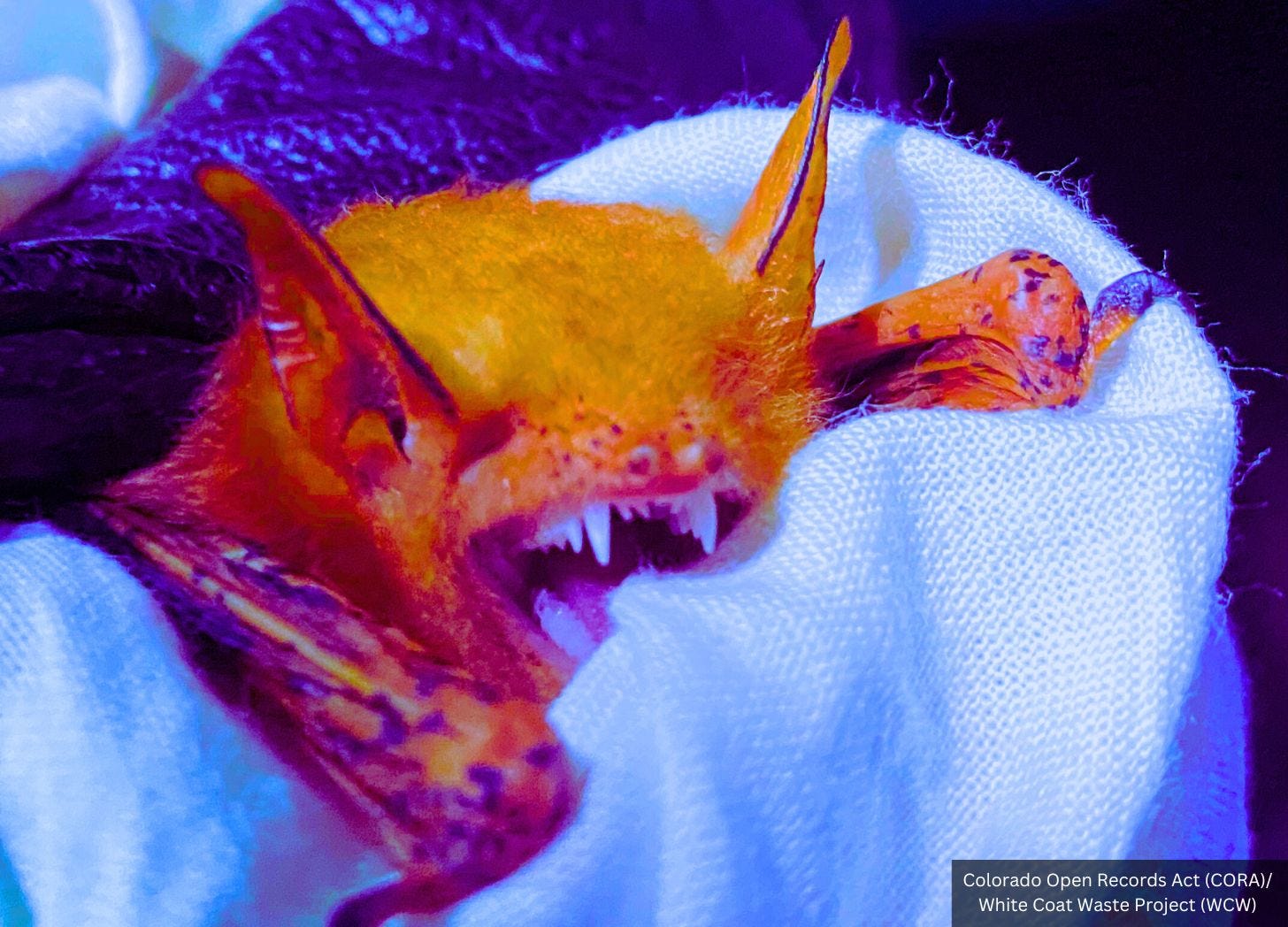



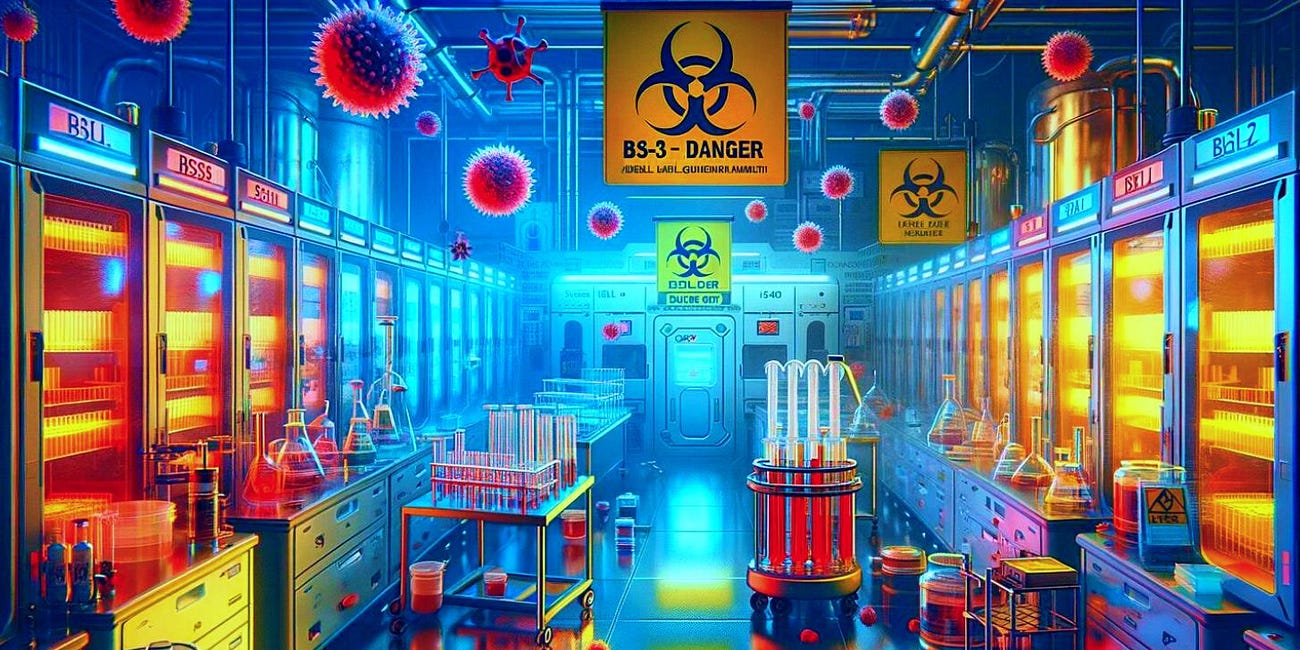
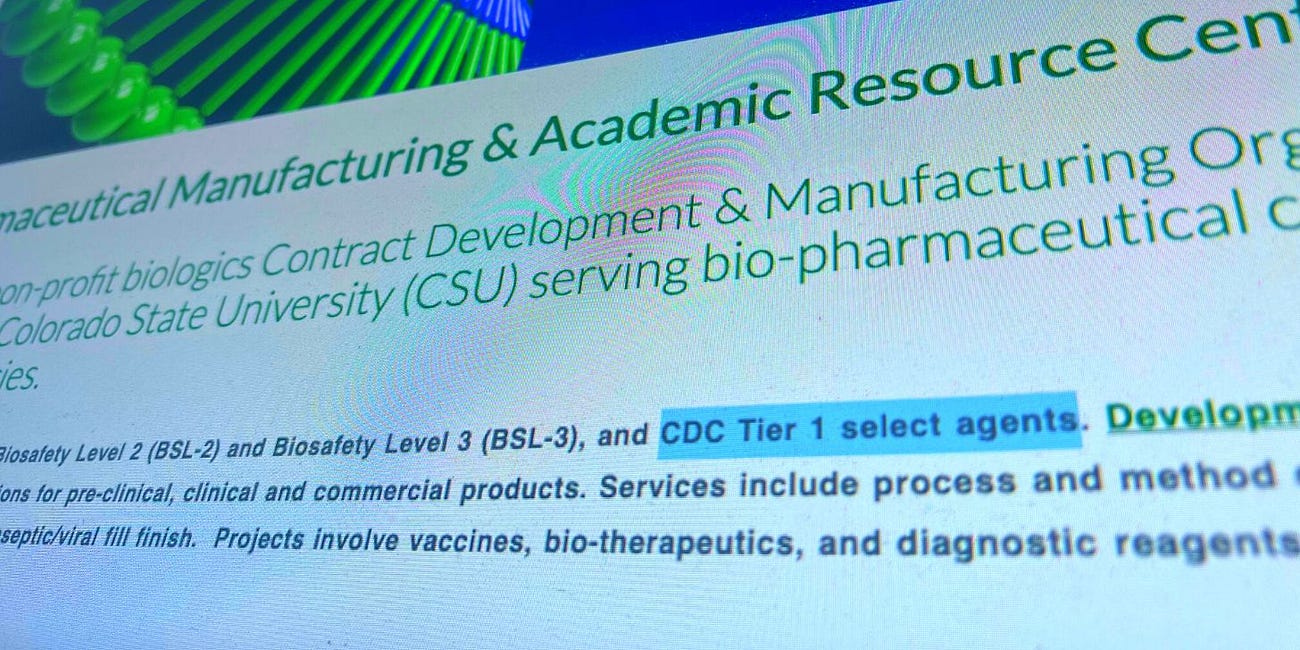
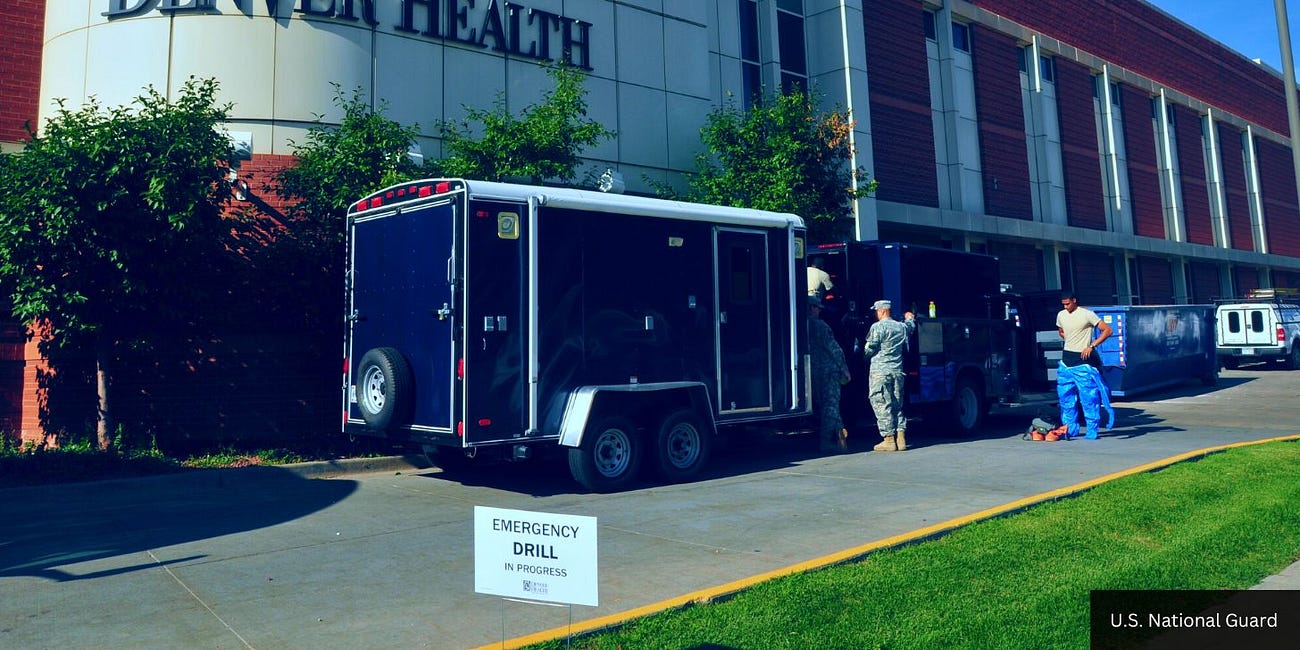
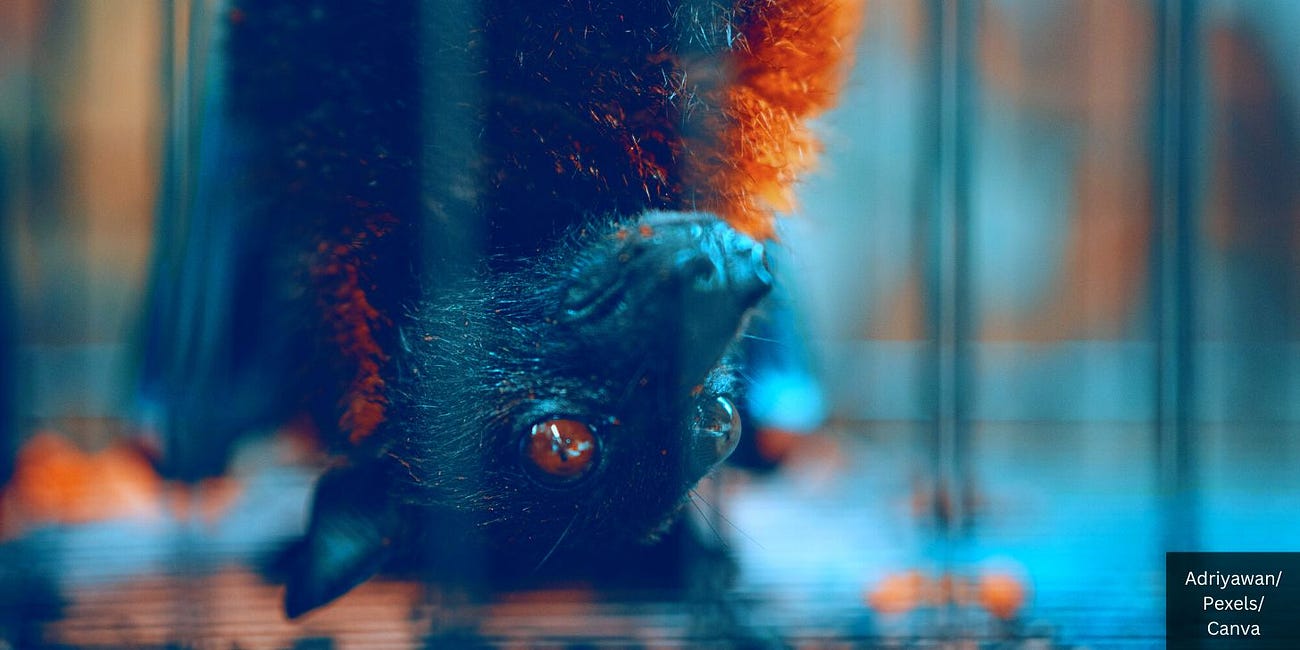
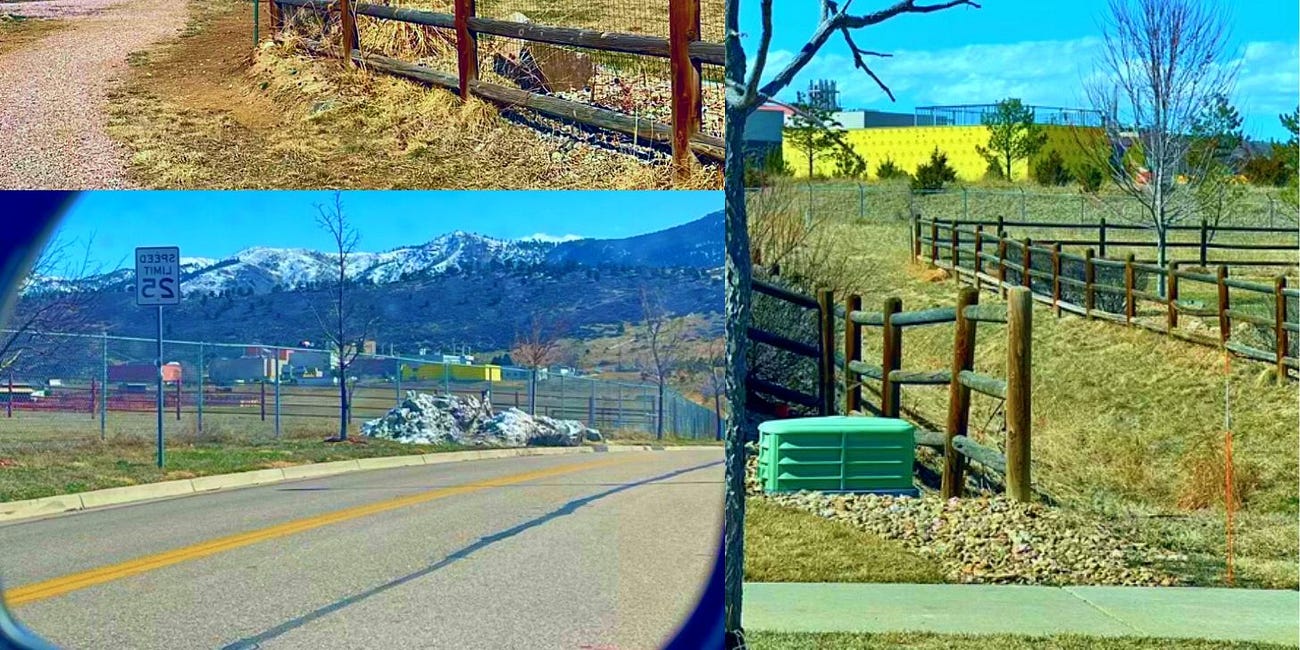
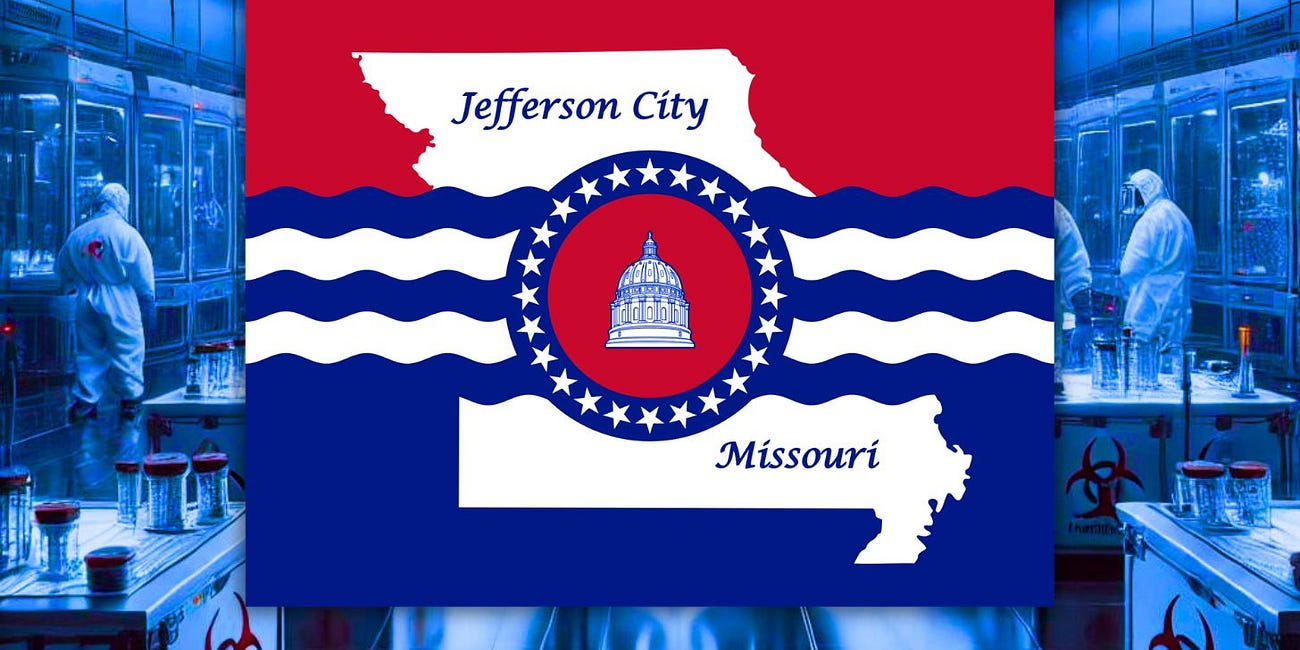
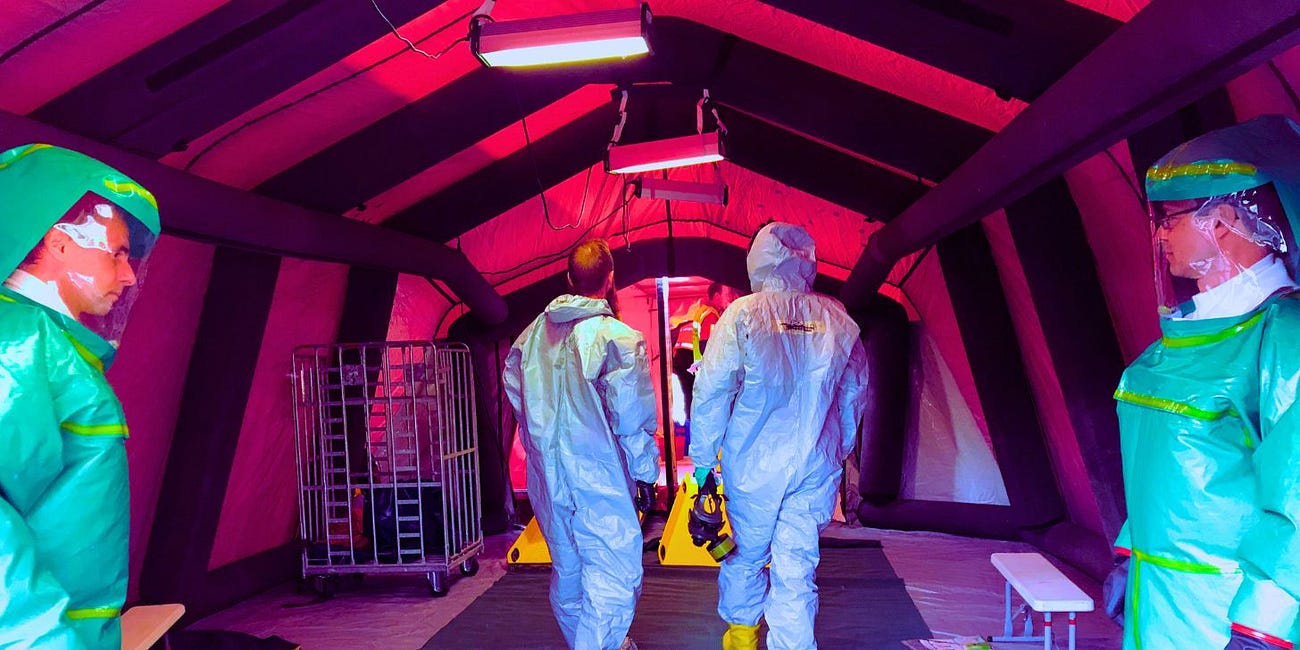

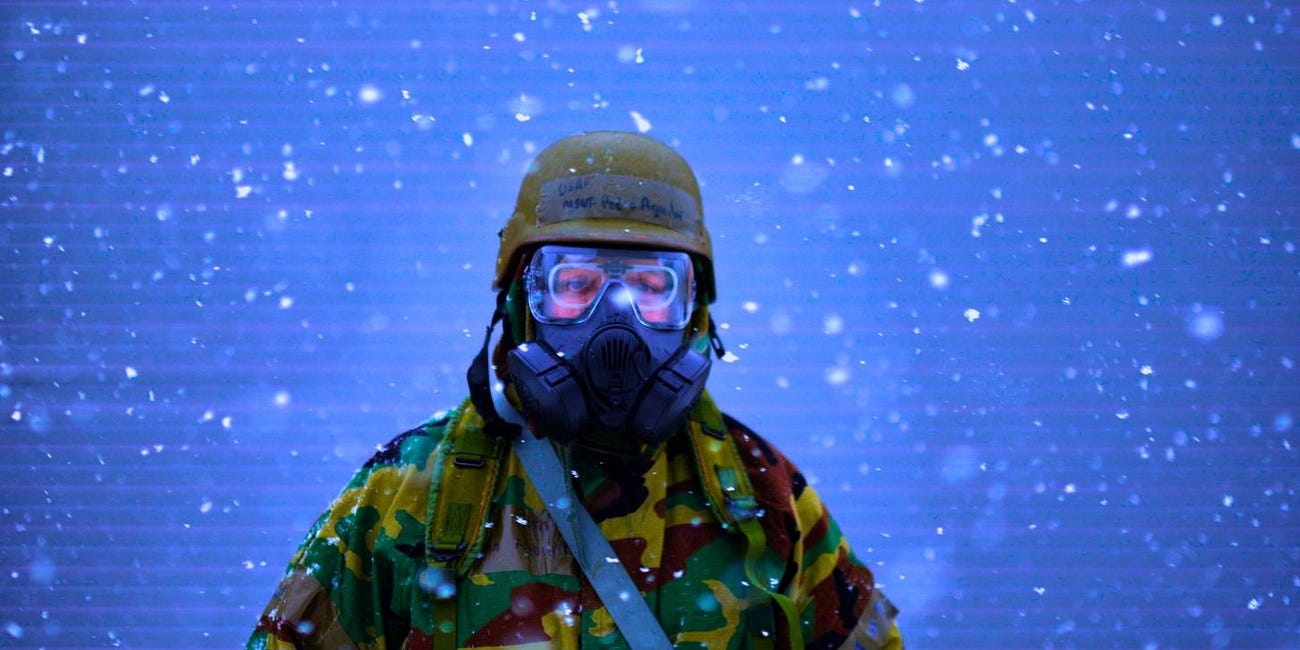


i guess as long as we are capable of doing this to the creatures around us we are capable to do it to anyone. It is horrible for me to see these beautiful eyes looking back at the human holding it and human being so cruel and closed minded, we do not need the imaginary evil as the human bible teaches, we are the one in action when you look around you. Without God we are reduced to being cruel, blind and without compassion. Very revealing.
So shutting down Eco health alliance was absolutely useless. They found another way. I forwarded the article to "the highwire"